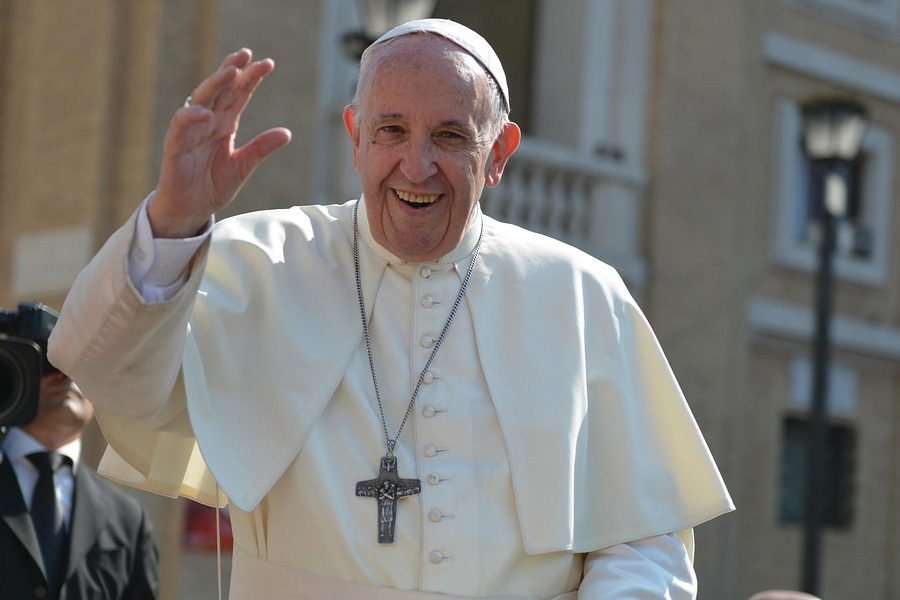When I was an undergraduate, I took a course called “Introduction to English Literature,” from a professor who believed in starting at the beginning. For the first couple of weeks the class studied Beowulf, a three thousand line poem, composed in the eighth century, and regarded as the greatest single work of Old English literature.
I was fascinated by the archaic world the poem evoked, and especially by the relationship, in the poem, between a chieftain and the warriors who followed him. The leader was very close to his followers. He knew each of them well, and they knew him. The warriors regarded their leader as the source of all good things. He was called ‘ring-giver’ in token of the gifts he showered on his followers. In return they served him with courageous fidelity. They obeyed him. They celebrated his virtues. In battle they would gladly sacrifice their lives for him. The greatest disgrace imaginable was to live on after ones chieftain was killed.
I was delighted by Beowulf. It had all the appeal of the fantasies of Tolkien, with the added attraction of representing a culture that had actually existed. Of course it’s a violent poem, but it is a fairy tale kind of violence, that seemed safely removed from everyday experience. On the other hand, the positive emotions the poem called forth were, to me, real and satisfying.
Decades later, as a young priest, I went on an eight-day Ignatian retreat in Wales. My director set me the task of reflecting on the call of the apostles in the Gospel of John, and for the first time in years I found myself thinking of Beowulf. It struck me that Nathanael accepts that Jesus is the Christ, because Jesus knew him, and that we all want a Messiah who knows us. It seemed to me that the instinct that led the disciples to follow Christ was the deep-seated inclination that we all have, to enlist in the service of a great leader. Jesus was their ring-giver, and they set out to serve him on the same terms we encounter in Beowulf. It also struck me that Jesus knows me every bit as well as he knows Nathanael. He is my ring-giver too. And yours. St. Paul reminds us that everything we have, including our very existence, is Christ’s gift. “In him everything in heaven and on earth was created, things visible and invisible.” All were created through him and for him. He is before all else that is. In him everything continues in being. Samuel tells us that all the tribes of Israel came to David in Hebron to anoint him king, and said to him: “Here we are, your bone and your flesh.” We can say the same to Christ, for he became a human being with flesh and bone like our own.
And in another sense we are his very body, through which he acts in the world.
Christ is our Savior — our king. We are his apostles. He gives us everything. To enjoy his gifts is to honor the giver. In return for what we have been given, it is our delight to serve him, to sacrifice everything to advance his plans — to increase his glory. Our Responsorial Psalm speaks of the joy of the tribes of the Lord. We are the tribes of the Lord. We rejoice in him.
The human instinct to follow a great leader has caused terrible harm in the world. There are at least two reasons for this. First, leaders have proved to be too foolish or too sinful to be worthy of the hopes and trust invested in them. This could never be the case with Christ. He is the Son of God, and has already lived and died for us. He has kept faith. Second, great leaders have believed that the way to solve humanity’s problems is through the effective exercise of power. The mystery of Christ’s Passion overturns this conventional wisdom. In our Gospel, the inscription reading, “This is the King of the Jews” is true. But it hangs not over a lordly figure on a golden throne, but above a broken man dying on a cross. Christ achieved our salvation not through power and mastery, but through weakness, humility and service. He will not lord it over us, or countenance our lording it over others. Jesus Christ is the only person in whom our instinct to follow a great leader may safely be given free reign. I believe he is the reason that the instinct exists. It is meant to lead us to him. And what an inspiration it can be to our life of faith to claim Christ as our king. We can see ourselves as a band of brothers and sisters serving our noble Lord in a glorious cause. We are on a quest — a tribe of Don Quixotes loosed on an indifferent world. But we are Don and Dona Quixotes with a difference, for our dream is not impossible. On the contrary, we are assured of ultimate victory in Christ, as we set out to make “peace through the blood of his cross.”

Rev. Charles B. Gordon, C.S.C., is co-director of the Garaventa Center for Catholic Intellectual Life and American Culture at the University of Portland. He writes and records a regular blog called “Fractio Verbi.



